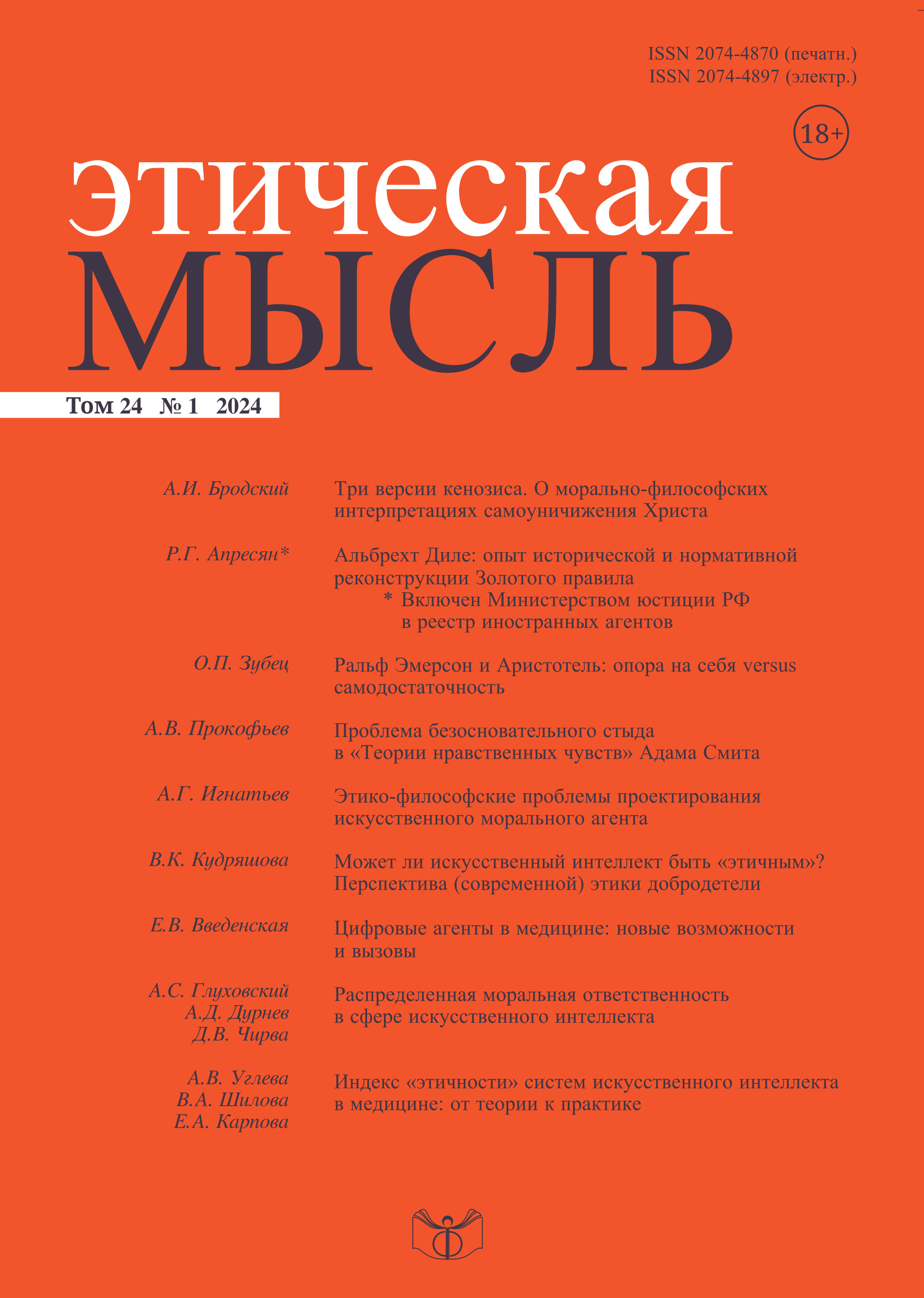Ralf W. Emerson and Aristotle: Self-sufficiency versus Self-reliance
DOI:
https://doi.org/10.21146/2074-4870-2024-24-1-48-69Keywords:
Aristotle, Emerson, μεγαλόψυχος, magnanimous, “Self-reliance”, self-sufficiency, Great-souledAbstract
The history of the Aristotelian concept μεγαλόψυχος (Great-souled) extends over almost two and a half millennia and is the history of the loss of the Aristotelian concept itself. Ralph Emerson belongs to those thinkers in whose views the concept of magnanimity is not accidental and significant. The article proposes to see it, first of all, in direct correlation with the image of the Great-souled in Aristotle. The main source when referring to Emerson’s magnanimity is his famous essay “Self-reliance”. It is permeated with the desire to free a person from conformism, following of ideas, norms, evaluations imposed by society. This liberation allows a person to rely on themself and rise to the over-spirit, thus seeing the truth, first of all, about oneself. This desire of Emerson seems similar to Aristotle’s attempt to consistently think of man as the beginning of action and the world, as a result of which the image of the Great-souled is born; this kinship is manifested in the affinity of many themes and ideas. Thus, Emerson strives to free man not only from society, but also from their own past and future, i.e. think of them in the actual present, outside of time, which echoes the Aristotelian understanding of an act as an actual reality, as a whole and self-sufficient. Disagreeing with the opposition of Aristotle and Emerson on the basis of their understanding of the role of external goods or reducing it to separated judgments, the author sees the key difference in the following: the Great-souled sets the world of people, the polis, with his decision-action, he is self-sufficient and one-and-the-only, while the Magnanimous seeks to rely on himself by rejecting society: being primarily a cognizer and not an actor, he does not achieve self-sufficiency and oneness.









